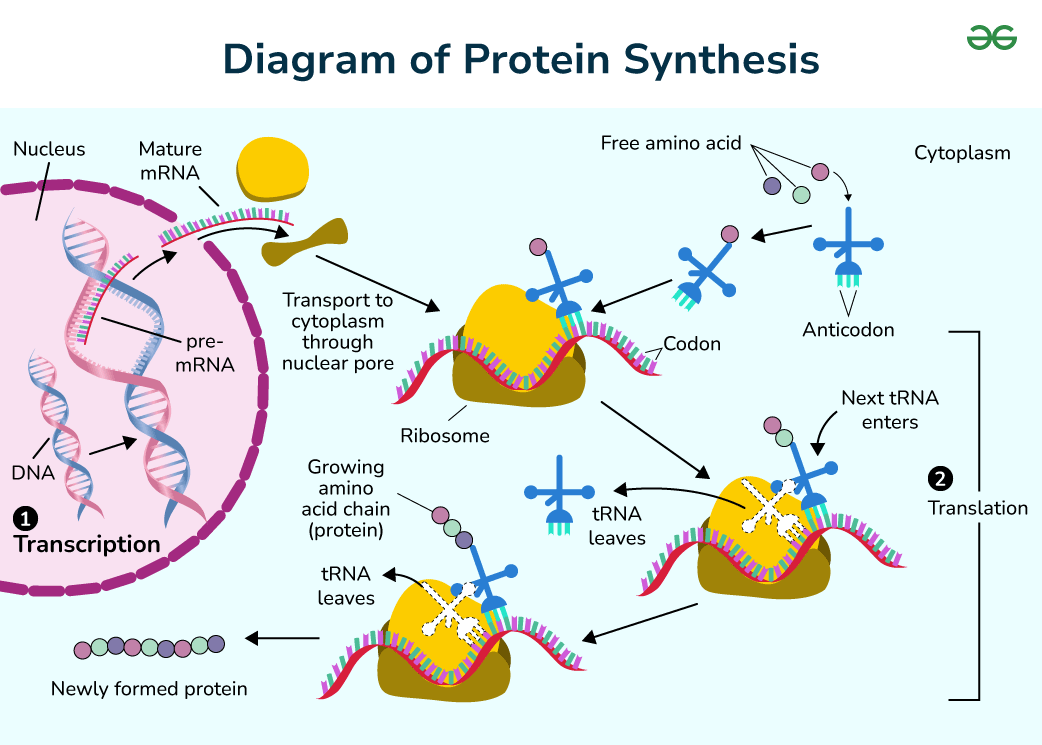Do You Know How Amino Acids Function in Your Body?
You may have heard of amino acids, but do you really understand their function in your body? Read on to learn more about the vital role these crucial molecules play in your overall health and well-being.
What Are Amino Acids?
Amino acids are the building blocks of proteins, which are essential for growth, repair, and maintenance of body tissues. But did you know that there are 20 different amino acids that your body needs to function properly? These amino acids can be classified into two categories: essential amino acids, which must be obtained through your diet, and non-essential amino acids, which your body can produce on its own.
The Role of Amino Acids in Protein Synthesis
Proteins are made up of long chains of amino acids, which are linked together in a specific sequence. This process of linking amino acids together to form proteins is known as protein synthesis. During protein synthesis, your body uses specific amino acids to build and repair the tissues in your body. Without an adequate supply of amino acids, this process would not be possible, leading to a variety of health issues.
The Importance of Essential Amino Acids
Essential amino acids are crucial for good health because your body cannot produce them on its own. Therefore, it is important to include foods in your diet that are rich in these essential amino acids to ensure that your body has an adequate supply. Some examples of foods that are high in essential amino acids include poultry, fish, eggs, dairy products, and legumes.
Non-Essential Amino Acids and Their Functions
Non-essential amino acids are those that your body can produce on its own, so you do not necessarily need to get them from your diet. However, these amino acids still play important roles in various bodily functions. For example, glutamine is a non-essential amino acid that plays a key role in immune function, while arginine is important for wound healing and the production of nitric oxide, which helps to relax blood vessels.
The Importance of Branched-Chain Amino Acids (BCAAs)
Branched-chain amino acids (BCAAs) are a group of three essential amino acids: leucine, isoleucine, and valine. These amino acids are particularly important for athletes and individuals who engage in regular physical activity, as they can help improve exercise performance, reduce muscle soreness, and promote muscle recovery. Including foods such as meat, dairy products, and legumes in your diet can help ensure that you are getting an adequate supply of BCAAs.
Amino Acids and Brain Function
Amino acids play a vital role in brain function, as they are used to produce neurotransmitters, which are chemical messengers that allow communication between nerve cells. For example, the amino acid tryptophan is used to produce serotonin, a neurotransmitter that plays a key role in regulating mood, appetite, and sleep. Other amino acids, such as glutamine and glycine, are important for cognitive function and memory.
Amino Acids and Digestive Health
Some amino acids have been found to have a positive impact on digestive health. For example, glutamine is an amino acid that is important for maintaining the integrity of the intestinal lining and promoting healthy digestion. Studies have also shown that glutamine supplementation may help alleviate symptoms of irritable bowel syndrome (IBS) and other gastrointestinal disorders.
Amino Acids and Muscle Growth
Amino acids, especially BCAAs, are essential for muscle growth and repair. During exercise, muscle tissue is broken down, and amino acids are needed to repair and rebuild this tissue. By consuming protein sources that are rich in essential amino acids, such as lean meats, fish, and dairy products, you can help support muscle growth and recovery.
Amino Acids and Weight Management
Amino acids can also play a role in weight management. Certain amino acids, such as leucine, have been found to promote fat loss and improve metabolic health. Including foods that are high in protein and essential amino acids in your diet can help you feel fuller for longer, reduce cravings, and support weight loss efforts.
Amino Acid Deficiencies and Health Issues
A deficiency in certain amino acids can lead to a variety of health issues. For example, inadequate intake of lysine, an essential amino acid, can lead to impaired growth and development in children. Deficiencies in other amino acids, such as tryptophan and tyrosine, can affect mood, cognition, and overall well-being. To prevent amino acid deficiencies, it is important to consume a balanced diet that includes a variety of protein sources.
How to Ensure You are Getting Enough Amino Acids
To ensure that you are getting an adequate supply of amino acids, it is important to consume a varied and balanced diet that includes a variety of protein sources. Some examples of foods that are high in amino acids include:
- Lean meats such as chicken, turkey, and beef
- Fish and seafood
- Eggs
- Dairy products such as milk, yogurt, and cheese
- Legumes such as beans, lentils, and chickpeas
- Nuts and seeds
- Whole grains
By including these foods in your diet on a regular basis, you can help ensure that your body has the necessary amino acids to function properly and support overall health and well-being.
Conclusion
In conclusion, amino acids are crucial molecules that play a variety of important roles in your body. From protein synthesis and muscle growth to brain function and digestive health, amino acids are essential for maintaining good health and well-being. By ensuring that you are getting an adequate supply of essential amino acids through your diet, you can help support these vital functions and promote overall health. So next time you sit down to a meal, remember the important role that amino acids play in keeping your body healthy and functioning at its best.

